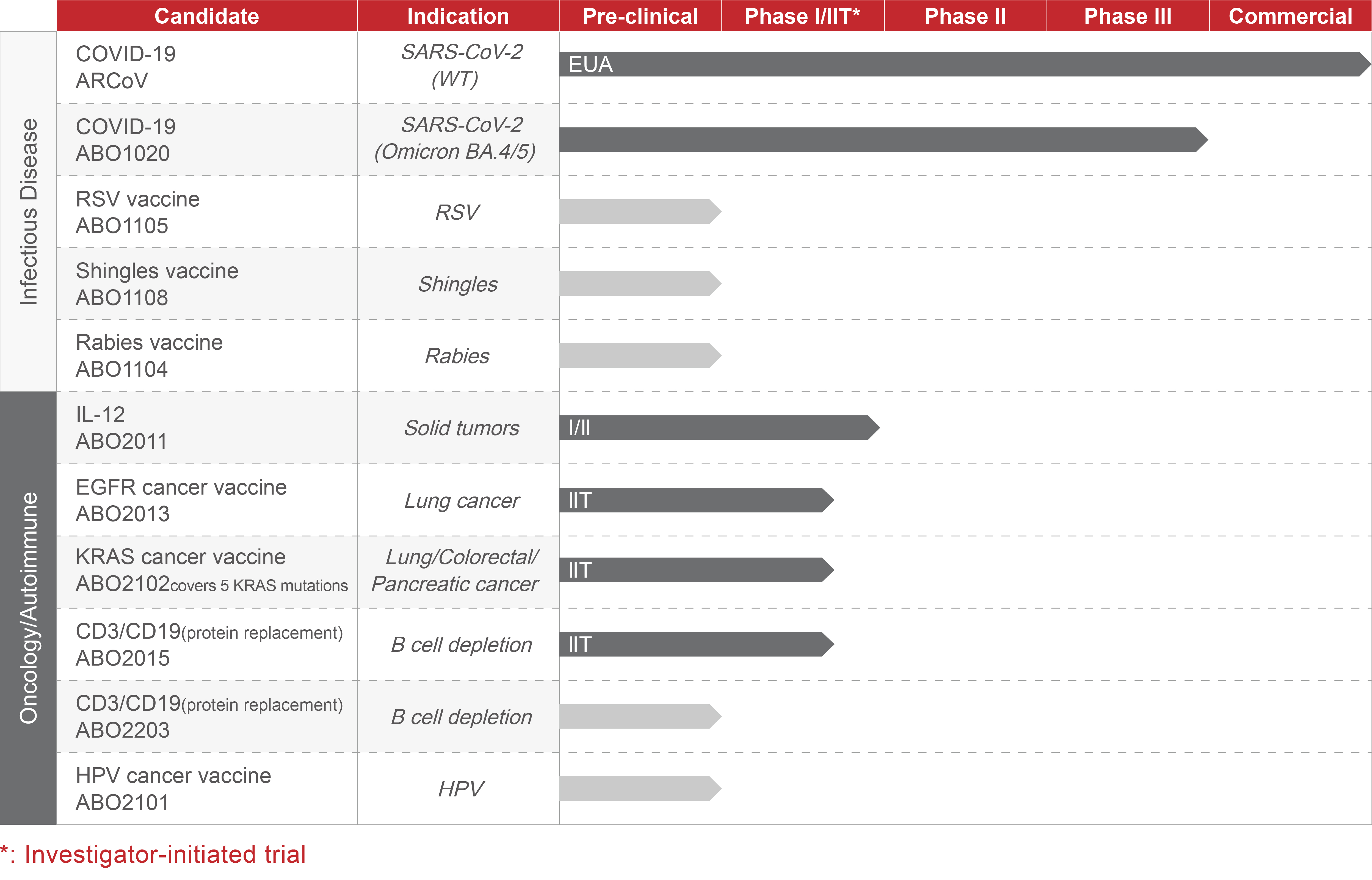Focused therapeutic areas and pipeline progress
-
 Infectious Diseases
Infectious Diseases -
 Oncology
Oncology -
 Autoimmune Diseases
Autoimmune Diseases
The outbreak of COVID-19 since the end of 2019 has been a warning that public health is an integral part to national security, economy and social stability. Other than COVID viruses,several other viruses such as RSV and seasonal influenza virus also occur sporadically across the world. The outbreaks of pandemics together with other infectious diseases demand more efficacious vaccines and drugs to be developed.
mRNA vaccine, once conveyed into cells by a delivery system such as lipid nanoparticles (LNP) will express vaccine target antigens within cells, and the expressed antigens will in turn induce B cell and T cell immune responses to provide protective immunity against future infection. In addition, the technology offers potential advantages in speed of development and manufacturing which have the potential to position people to better prepare for the respond to infectious disease threats that place millions of people at risk around the world.
At the immediately following outbreak of COVID-19 early 2020, Abogen started the campaign to develop COVID-19 mRNA vaccine and successfully delivered first China made mRNA vaccine late 2022. The company is also committed to apply its mRNA technologies to a broader spectrum of vaccines against other infectious viruses.
Global cancer cases are expected to increase by 47% by 2040 and its mortality rate ranks among the highest in the world. With an aging population, the incidence of cancer in China is also rising year by year. There remains a huge unmet need in the field of malignant tumor treatment. It is significant to develop more effective cancer treatments for the great expectation to "to raise the overall 5-year survival rate of cancer by 15%" proposed in "Healthy China 2030".
The mRNA-based therapeutics in cancer treatment stimulate stronger, more specific immune responses or more efficient expression of target proteins in patients. Thus, multiple immune-oncology treatments can be achieved, including activation of T cells with specific tumor antigen, relieve tumor immunosuppression, and improvement of tumor immune microenvironment. At the same time, mRNA technology can solve an array of challenges faced by traditional development of novel drugs, deliver new ideas for research into immunotherapy and tackle the otherwise undruggable drug targets.
Abogen is committed to applying the mRNA platform technology to explore the field of oncology with great novelty and bring hopes to more patients.
Autoimmune diseases are a group of conditions where the immune system abnormally attacks the body's own tissues. It is estimated that approximately 10% of the global population is affected by autoimmune diseases, with over 80 known types, such as rheumatoid arthritis, multiple sclerosis, etc. These diseases are typically challenging to cure, and current treatment methods only provide symptomatic relief and often come with side effects, thus there is an urgent need for more effective and safer therapeutic approaches.
mRNA-based therapeutics works by guiding somatic cells to express specific proteins/antibodies, which can modulate or rebalance the immune system's function, thereby alleviating disease progression.
Abogen has established its own industry-leading proprietary mRNA platform and nanoparticle delivery system, laying a solid foundation for mRNA therapy to conquer autoimmune diseases.



